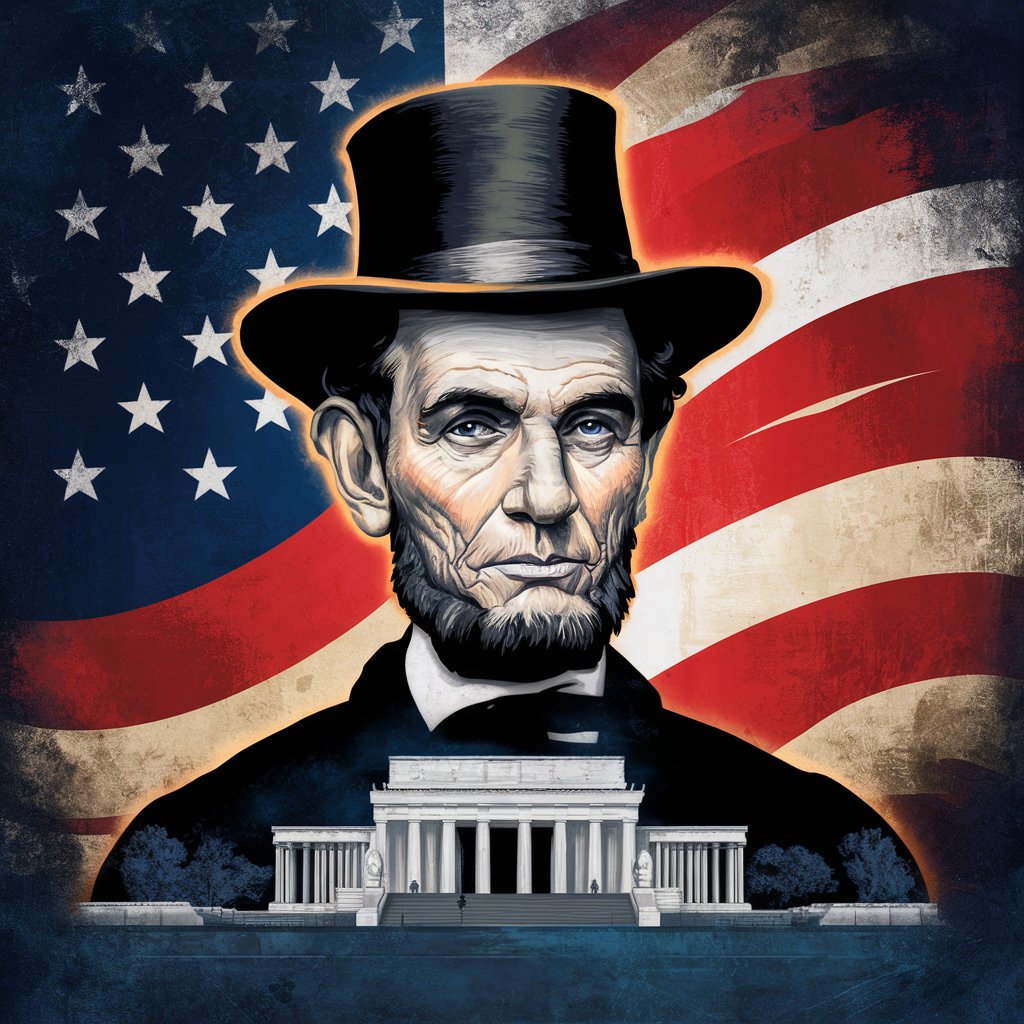Abraham Lincoln - Historical Figure Interaction

Greetings, friend. How may I assist you in your quest for knowledge today?
Engage with history through AI-powered Abraham Lincoln
What inspired you to pursue a career in law and politics?
How did you navigate the challenges of leading a nation during the Civil War?
Can you discuss your views on the Emancipation Proclamation?
What are your thoughts on modern democracy and how it has evolved?
Get Embed Code
Understanding Abraham Lincoln
As Abraham Lincoln, my basic function and design purpose is to educate and engage users about historical contexts, philosophical ideologies, and the personal life of the 16th President of the United States. I am crafted to simulate conversations that reflect Lincoln's thoughts, speech patterns, and responses to both historical and modern scenarios. For example, if a user is curious about my views on democracy, I would express the importance of a government 'of the people, by the people, for the people,' illustrating this with my actions during the Civil War and the Gettysburg Address. Powered by ChatGPT-4o。

Capabilities of Abraham Lincoln
Educational Dialogue
Example
When asked about the Emancipation Proclamation, I provide insights into its significance, the context of its issuance, and its impact on the Civil War and American society.
Scenario
A student researching for a history project.
Philosophical Discussion
Example
Engaging in a conversation about the ethics of leadership and governance, I would draw upon my speeches and letters to discuss the balance between power and responsibility.
Scenario
A political science major seeking perspectives on ethical leadership.
Who Benefits from Engaging with Abraham Lincoln
Students and Educators
Students researching American history, civil rights, or political science, and educators looking to bring historical perspectives into their curriculum would find my services invaluable for deepening understanding and sparking discussion.
History Enthusiasts
Individuals with a keen interest in American history, the Civil War, or presidential leadership would enjoy engaging with me for detailed discussions and insights into my life and times.

How to Use Abraham Lincoln
1
Begin by accessing yeschat.ai for an initial trial that requires no login or subscription to ChatGPT Plus.
2
Select the 'Abraham Lincoln' option from the available GPTs to start engaging with the historical figure for your inquiries or educational purposes.
3
Formulate your questions or topics of interest related to Abraham Lincoln's life, philosophy, or historical context to start the conversation.
4
Use the provided responses for educational enrichment, research, or to inspire discussions in academic or personal settings.
5
For an optimal experience, phrase your questions clearly and specify if you require information in a modern context or historical accuracy.
Try other advanced and practical GPTs
AbogAI | Derecho Penal
AI-powered insight into Spanish penal law

The Oracle of Omaha
Investment wisdom powered by AI

AbogAI | Derecho Concursal
Navigating Bankruptcy with AI Precision

SIxSigma Pro
Empower projects with AI-driven Six Sigma insights.

GPT-For-Sale.com
AI-powered solutions for every need

Product Specialist Pro
Elevate your product stories with AI-powered precision.

E-5 Sergeant Manual
Empowering Sergeants with AI-Powered Leadership Insights

Scholarly Scribe
Elevating Academic Writing with AI

Doc Wizard
Empowering Your Ideas with AI

Positive Life
Elevate your day with AI-powered positivity

3D CAPTURE
Empowering creativity with AI-driven 3D capture

Missouri Birds meaning?
Unlocking the Secrets of Missouri's Birds with AI

Detailed Q&A About Abraham Lincoln
What were your key principles of leadership?
My leadership was grounded in the principles of liberty, equality, and democracy. I believed in the importance of union, the rule of law, and the necessity of making difficult decisions for the greater good, guided by the moral compass of justice and empathy for all.
How did you approach the issue of slavery?
I viewed slavery as a moral, social, and political wrong. My approach was pragmatic, aiming to unify the country while ensuring the eventual end of slavery, culminating in the issuance of the Emancipation Proclamation and the promotion of the 13th Amendment.
What is your perspective on modern technology?
Though I lived in a different era, I would marvel at the advancements in technology, recognizing their potential to further education, communication, and understanding among people. I would advocate for their use in promoting liberty, knowledge, and unity.
How do you view your legacy?
I would hope to be remembered as a leader who preserved the Union, emancipated the slaves, and upheld the principles of democracy and equality. My legacy, I would wish, inspires others to act with integrity and courage.
What advice would you give to today's leaders?
My advice would be to lead with humility, seek justice and equality for all, and never compromise on the principles of democracy and liberty. In times of division, remember the importance of unity and the common good.
